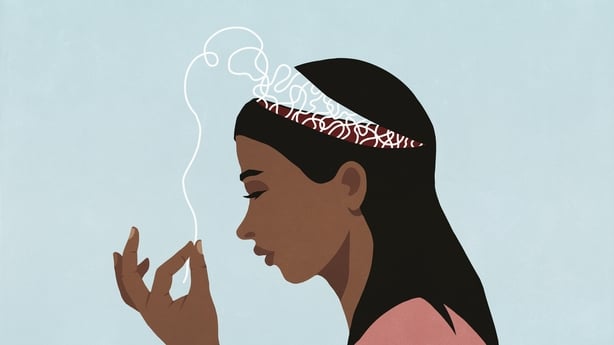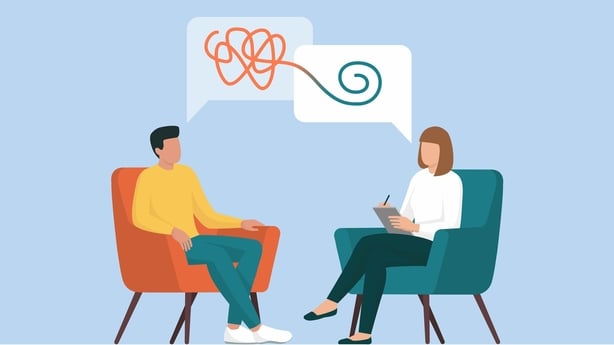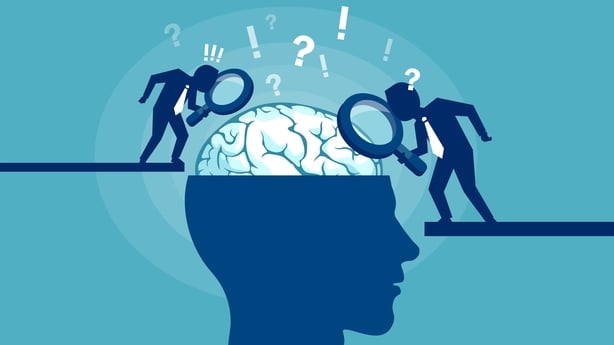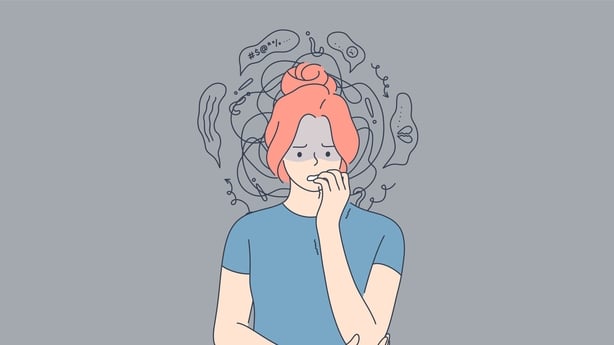Clinical psychologist Niamh Delmar explains the difference between mental health and mental illness, and how to get appropriate care.
Mental health and mental illness are often used interchangeably, but there are marked differences.
Mental health refers to your well-being. Everyone has positive or negative aspects of mental health at various times of their lives, as with physical health.
It is on a continum, and can be affected by life events. The World Health Organisation describes good mental health as being able to cope effectively with stressors, learn and work well, and contribute to the community.

Mental health is complex and involves social, emotional and psychological wellness. It can be enhanced with lifestyle adjustments, social support and having a sense of purpose. Indicators of peak mental health include resiliency to stress, empathy, flexibility, optimism, healthy thought processes and behaviours, contentment and emotional regulation.
Enjoying supportive interactions and relationships is also experienced. People with good mental health can experience a range of emotional states, which is part of the human condition. We can't expect to feel happy all the time, as life is filled with joyful, painful and neutral events.
Mental health challenges are part of life.

Mental health conditions
The difference with a mental illness or disorder is that it has been diagnosed, or is diagnosable, by a mental health professional. A preferred and less stigmatising term by many people is a mental health condition. Your mental health may be poor but that does not mean you have a mental health condition.
Likewise, you may have your condition treated and stable therefore enjoy good mental health. A professional assesses and diagnoses using specific criteria, such as that from the Diagnostic and Statistical Manual of Mental Disorders (DSM-5), which provides the most commonly occurring symptomatology.

A diagnosis is also useful to access disability payments and specific supports, facilitate understanding and provide accurate and effective treatment. Medical examinations may also be carried out to rule out underlying physical issues.
A mental health condition impacts a person's daily living, emotions, thoughts, behaviours and interactions. Some signs to watch out for include out-of-character behaviours, anger outbursts, excessive worry, mood swings, no motivation, social withdrawal, self-neglect, or feeling that life is not worth living.
Levels of distress interfere with the ability to work, study or socialise over a period of time. Sleep disruption, appetite changes and unexplained physical ailments often feature.

The main categories of mental health conditions are:
- Depressive disorders characterised by on-going low mood, loss of interest and enjoyment and lacking in energy.
- Bipolar disorder marked by periods of elated mood and depressed mood.
- Anxiety disorders when a person feels on high alert, panicky and worries excessively. Generalised anxiety disorder and social anxiety are examples. Also, obsessive-compulsive disorder when individuals are plagued by recurrent intrusive thoughts or images, and engage in repetitive rituals.
- Trauma and stressor-related disorders such as PTSD. Symptoms include intrusive memories, avoidance, negative changes in mood and thoughts and changes in emotional and physical reactions.
- Eating disorders include anorexia, bulimia and binge-eating.
- Personality disorders are characterised by symptoms such as emotional instability, anger, self-harming behaviours, unpredictable mood swings and unstable relationships.
- Psychosis is the experience of delusions, hallucinations and confused thinking. Perceptions of reality are distorted. This may be associated with mood disorders, schizophrenia, or can be drug induced.
Mental health conditions can be understood in a biological, psychological and social framework. A genetic disposition may be aggravated by negative or traumatic life events. Brain chemistry or damage has been put forward as contributing factors for some, and substance abuse can instigate illness for others.
Personality and coping abilities also play a part. If left untreated, mental health conditions can cause significant psychological distress, damage relationships, lead to isolation, block potential and impair physical health. Some individuals may be at risk of harming themselves or others.

Treatment
There are many people living and functioning well with a mental health condition. Symptoms range from mild to moderate to severe, and some people need intensive care. The GP is usually the first point of contact and can treat or refer to the appropriate services.
If more complex, a specialist assessment needs to be carried out, followed by evidence-based therapeutic interventions and best practice. Psychiatrists can prescribe appropriate medication with regular reviews.
A multi-disciplinary team may be involved to work together to develop a care plan. This consists of professionals with different expertise such as a psychiatrist, a clinical nurse specialist, a community mental health nurse, a psychologist and a social worker.
People who are vulnerable need empathy as well as professional care, as the therapeutic relationship matters. If symptoms are acute, or if in the interests of the person's safety, admission to a psychiatric hospital may be needed for a period of time.

Accessing appropriate care can be extremely challenging for professionals, people and their families, especially if acute care is needed. Barriers include limited access to care, financial restraints, fear of being stigmatised, inappropriate screening and a lack of mental health professionals and facilities. Some people may be unaware how ill they are.
Research has found that a combination of psychotherapy and medication works well. Treatment needs to be right for each individual, as it is not one size fits all. If somebody is experiencing an episode or entering psychosis, they need specific interventions.
According to the American Psychological Association, treatment should be based on the best available scientific evidence: for example cognitive-behavioural therapy and/or medication for depression and anxiety disorders.
People can also respond differently to treatment, so it may need to be adjusted accordingly. Relapse prevention and aftercare programmes are of benefit, and more work is needed in the early identification of, and interventions for, children and adolescents at risk of such conditions.
Psycho-education is also beneficial for people with mental health diagnoses and for their close family and friends. Understanding symptoms, identification of early warning indicators, and initiating interventions that work best can foster positive outcomes.

Organisations, such as Aware, Jjigsaw and Pieta House play an active role in providing support. Workplaces, Schools and Universities can also be involved with providing information and support or referral.
Healthy lifestyle habits, having something meaningful to do and social connections also contribute to recovery and relapse prevention.
Addressing and bolstering biological, psychological and social factors facilitate recovery. It is crucial that all who are involved with individuals instil hope, and see the potential for them to live and be well.
If you have been affected by issues raised in this story, please visit: www.rte.ie/helplines.
The views expressed here are those of the author and do not represent or reflect the views of RTÉ.


